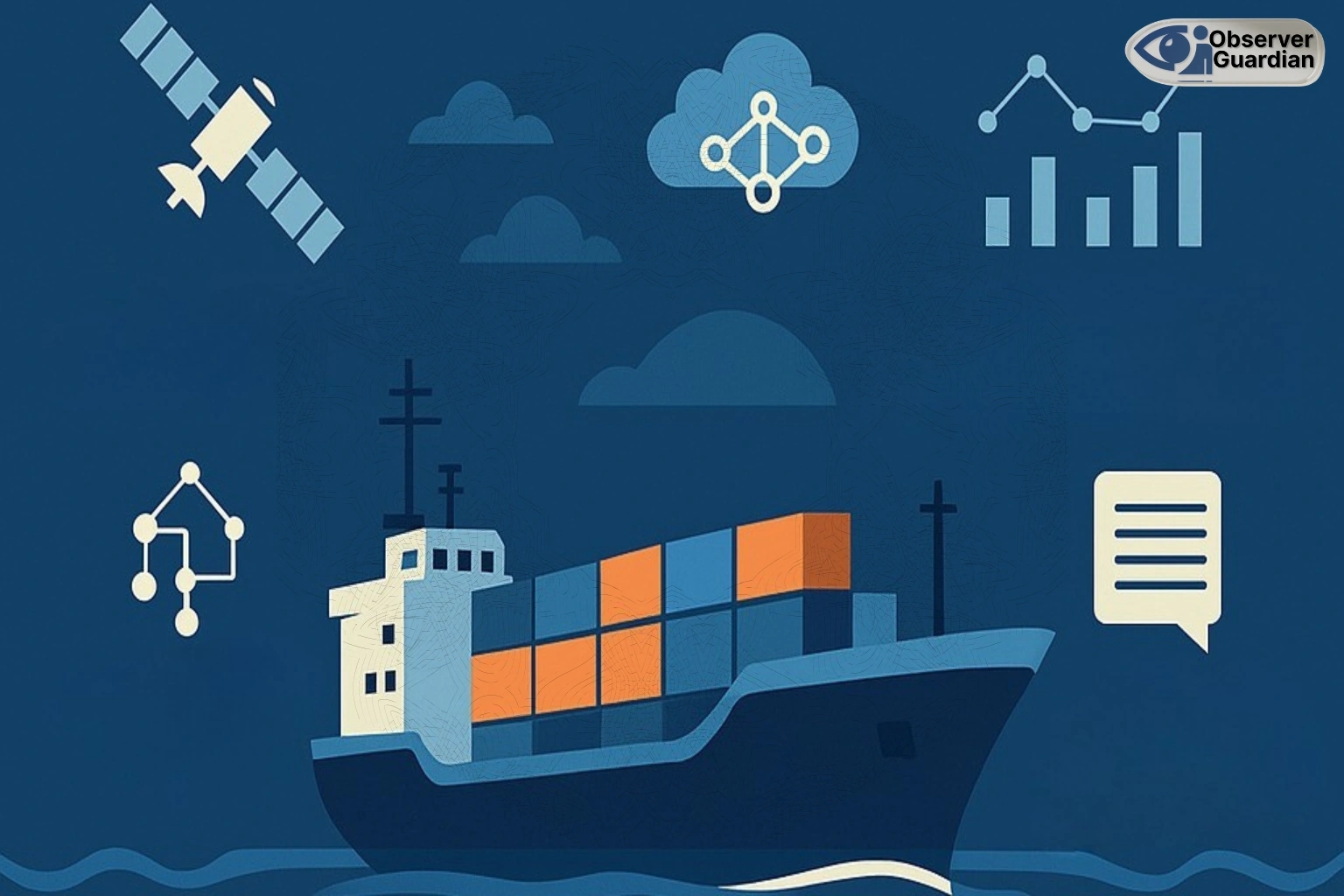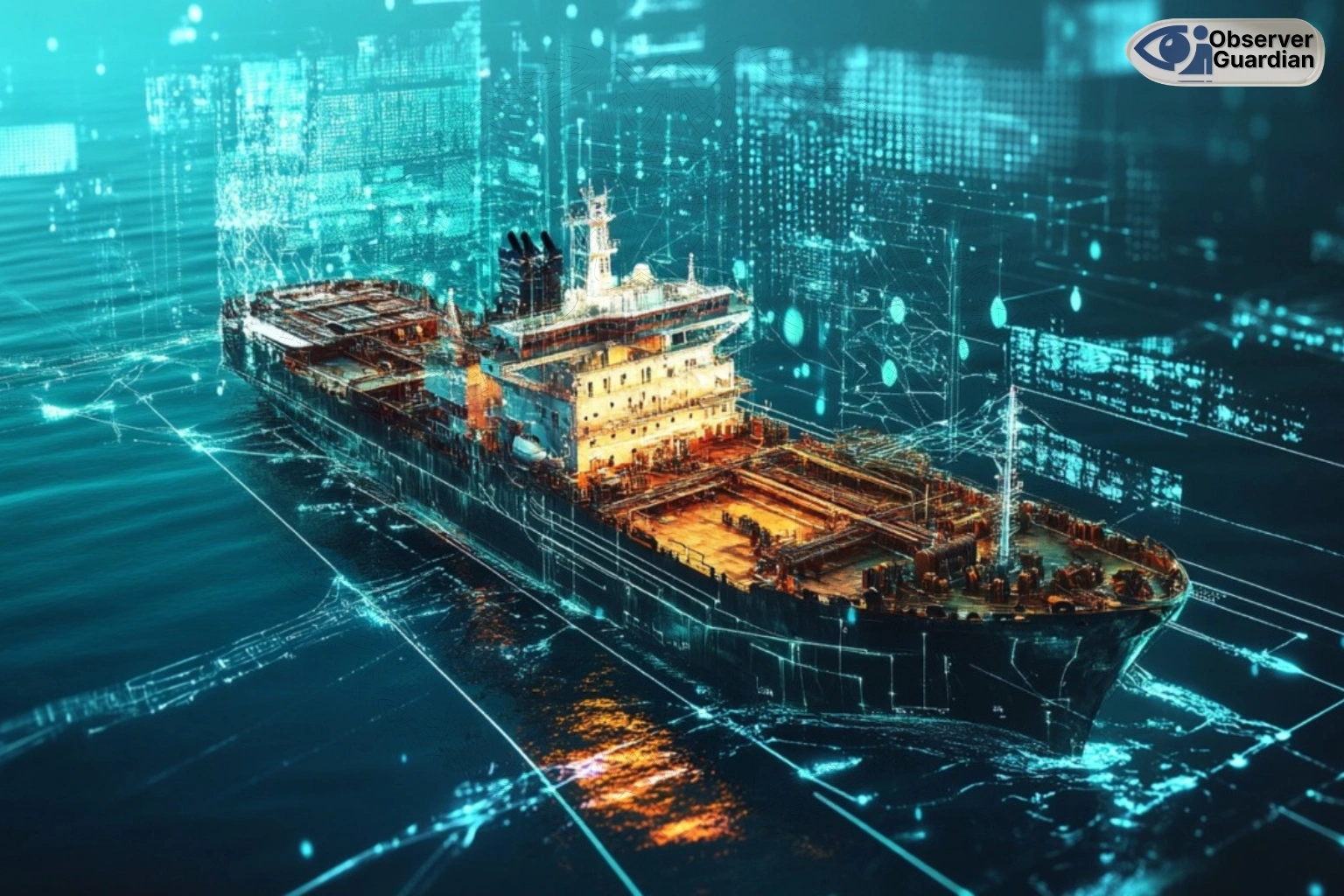The seas are central to the world’s trade. In fact, Ninety percent of the goods are transported via the sea routes. However, scientists are now warning us to watch out for a new and invisible threat. Cyber attacks on maritime systems are on the increase. For example, GPS Spoofing that can redirect vessels. Moreover, Ransomware can put critical port infrastructure in lockdown. Shipping lanes can be paralyzed by these attacks. Consequently, they can cripple international trade resilience. The world is ready for pirates. But it is ill equipped against hackers who don’t need ships to attack.
GPS spoofing isn’t science fiction. It is already happening. Ships have been lured to sail into the wrong waters. That’s more than a navigational hazard. It can cause conflict in contested waters and cause collisions.
It can cause a ship cargo carrier or tanker to drift off path. The scale of damage can be as large as natural disasters. Cyber activity in the ocean is a geopolitical weapon by mistake.
Ports as National Critical Infrastructure
Ports are not mere anchorages. They are computerized centers with automated control. Software tracks the containers. Cranes are operated by remote controls. If ransomware closes a port, it’s not simply a local problem. It flows down across supply chains in the world. Single cyber incidents can hold up thousands of shipments. This is why maritime cybersecurity has stopped being niche. It’s an economic issue for the entire world.

Trade Resilience in the Face of Threat
The strength of global trade depends on secure digital systems. Port attacks erode trust in supply chains. They reveal weaknesses of globalization. Countries are reliant on imports and exports. Maritime systems down, food and energy shortfalls to follow. The COVID-19 pandemic has already demonstrated how weak trade is. Cyberattacks may tip fragility into collapse. That makes maritime cybersecurity a lever of power. Whoever owns it, owns the arteries of world commerce.
Autonomous Algorithms on the Battlefield
At the same time, Generative AI is altering geopolitics. What began to creativity has now found military calculations. Deep fakes, narrative manipulation, and disinformation are just a few examples of how Generative AI can be used for malicious purposes. It can model enemy strategies or produce malware code. Autonomous military AI agents, researchers say, represent a more dangerous step. They can work automatically without human supervision. That makes them assets and risks in the global power games.
AI as a Strategic Asset
AI is seen as the new oil by countries. The winner in AI will be the winner in military innovation. Unmanned aerial vehicles, naval surveillance systems and artificial intelligence decision making are on the rise. They reduce reaction times. They enhance targeting. They reshape war. Generative AI models have also made cyber warfare faster. They contribute to more complicated assaults. This isn’t confined to the battlefield. It even goes as far as ports, satellites and energy grids. AI is becoming a nation state power lever.
The Dual Nature of AI
The danger and hope for AI is twin. Defenses can be enhanced by Generative AI. It can detect cyber-attacks faster than humans. It can track abnormalities in GPS signals. It can alert for ransomware attacks. But the same models can be used for an offensive purpose. They can produce believable pseudo signals. They can create malware to hack maritime networks. This dual use property makes regulation imperative. However, regulations are slow, and AI is moving fast.
AI and cybersecurity for maritime converge is one truth. Both are new geopolitical levels. Destroying ships and ports unravel economies.
Using AI agents changes the military balance. Collectively, they redefine world security. Countries that secure their ports and make responsible use of AI will come to the forefront.
Nations that fail will suffer economic and strategic decay. World power is no longer measured in just missiles or aircraft carriers. It is measured in secure code, resilient systems and intelligent algorithms.
The Call for Cooperation
No nation can safely guard maritime trade or govern AI on its own. Seas connect nations. Cyber attacks cross borders. AI advances propagate in an instant. Cooperation is not optional. It is necessary. International frameworks must be changed. They need to establish standards for maritime cybersecurity. They must put on limits for autonomous military AI. Without them the problems associated with escalation increase.
The new territories are the oceans and algorithms. GPS spoofing and ransomware put the arteries of trade at risk. Power struggles are redefined by Generative AI and Autonomous AI agents. Both are silent but decisive. They do not fire shots. Yet, they can cripple nations. In this time, maritime cybersecurity and AI go beyond technical concerns. They are geopolitical levers. Ships and ports are the guarantors of world order to come and the way countries handle the defense of these and how they govern AI will determine the future.
Disclaimer: The views and opinions expressed in this article are exclusively those of the author and do not reflect the official stance, policies, or perspectives of the Platform.







